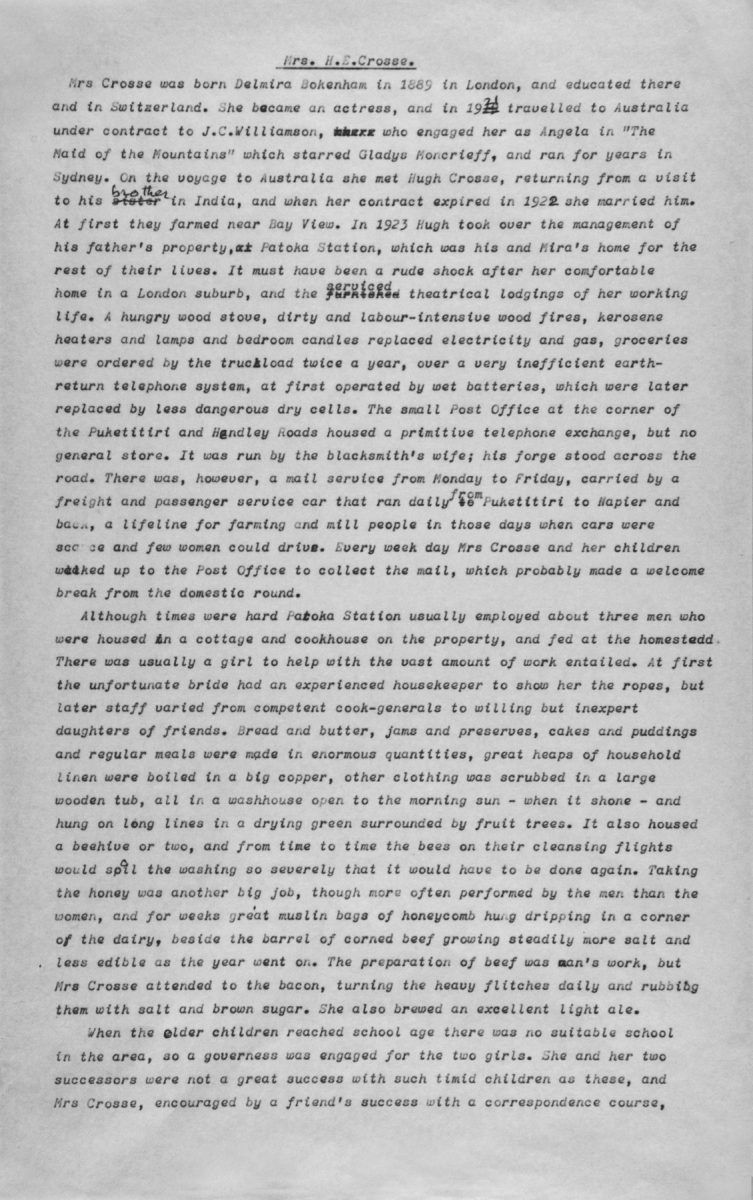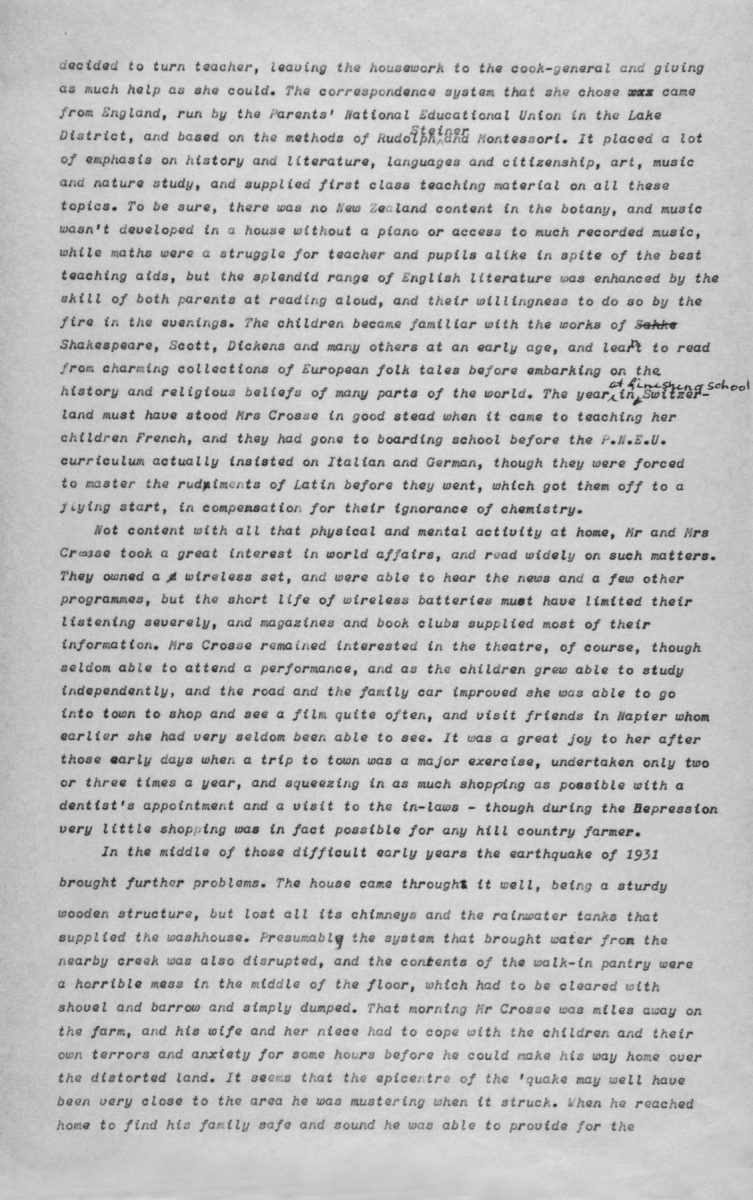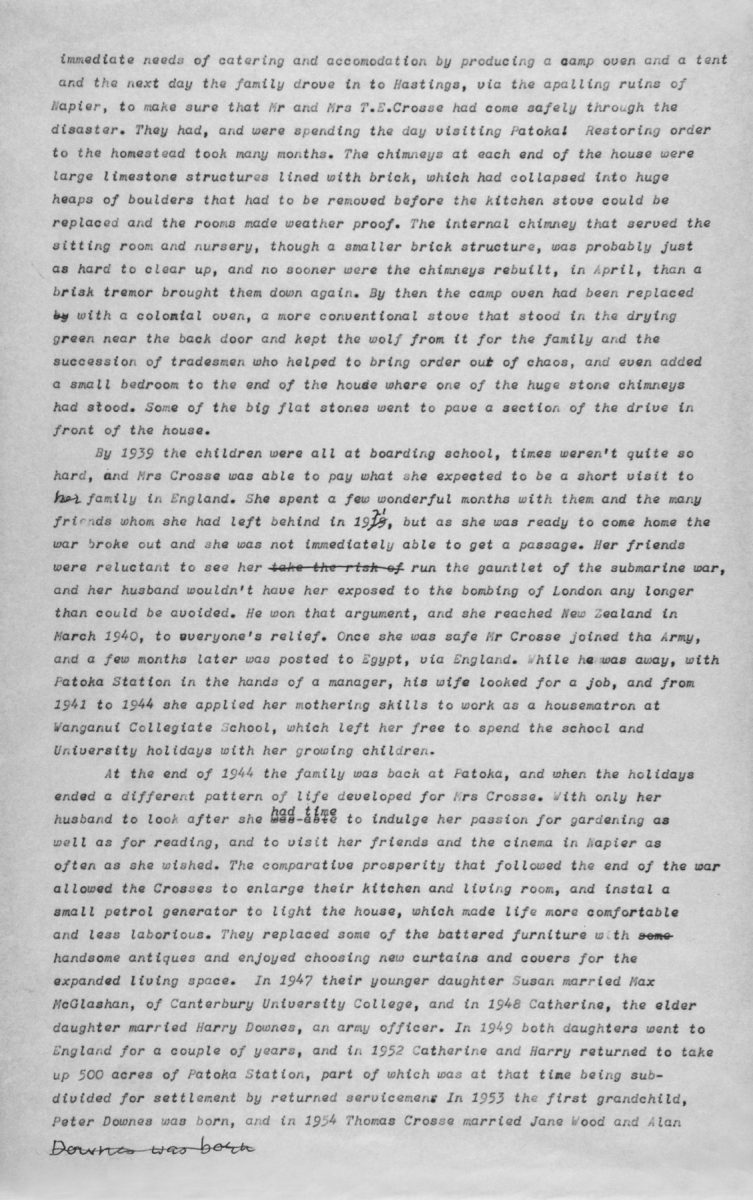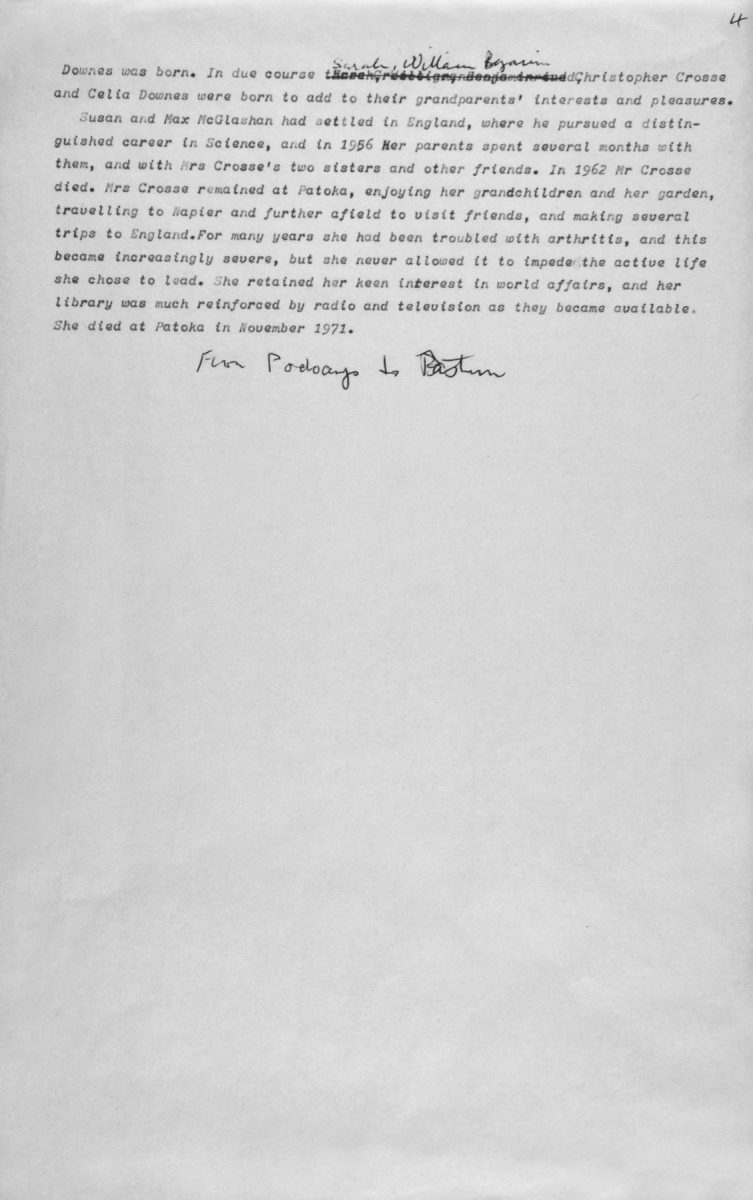Mrs. H.E. Crosse.
Mrs Crosse was born Delmira Bokenham in 1889 in London, and educated there and in Switzerland. She became an actress, and in 1921 travelled to Australia under contract to J.C. Williamson, who engaged her as Angela in “The Maid of the Mountains” which starred Gladys Moncrieff, and ran for years in Sydney. On the voyage to Australia she met Hugh Crosse, returning from a visit to his brother in India, and when her contract expired in 1922, she married him. At first they farmed near Bay View. In 1923 Hugh took over the management of his father’s property, at Patoka Station, which was his and Mira’s home for the rest of their lives. It must have been a rude shock after her comfortable home in a London suburb, and the serviced theatrical lodgings of her working life. A hungry wood stove, dirty and labour-intensive wood fires, kerosene heaters and lamps and bedroom candles replaced electricity and gas, groceries were ordered by the truckload twice a year, over a very inefficient earth-return telephone system, at first operated by wet batteries, which were later replaced by less dangerous dry cells. The small Post Office at the corner of the Puketitiri and Hendley Roads housed a primitive telephone exchange, but no general store. It was run by the blacksmith’s wife; his forge stood across the road. There was, however, a mail service from Monday to Friday, carried by a freight and passenger service car that ran daily from Puketitiri to Napier and back, a lifeline for farming and mill people in those days when cars were scarce and few women could drive. Every week day Mrs Crosse and her children walked up to the Post Office to collect the mail, which probably made a welcome break from the domestic round.
Although times were hard Patoka Station usually employed about three men who were housed in a cottage and cookhouse on the property, and fed at the homestead. There was usually a girl to help with the vast amount of work entailed. At first the unfortunate bride had an experienced housekeeper to show her the ropes, but later staff varied from competent cook-generals to willing but inexpert daughters of friends. Bread and butter, jams and preserves, cakes and puddings and regular meals were made in enormous quantities, great heaps of household linen were boiled in a big copper, other clothing was scrubbed in a large wooden tub, all in a washhouse open to the morning sun – when it shone – and hung on long lines in a drying green surrounded by fruit trees. It also housed a beehive or two, and from time to time the bees on their cleansing flights would soil the washing so severely that it would have to be done again. Taking the honey was another big job, though more often performed by the men than the women, and for weeks great muslin bags of honeycomb hung dripping in a corner of the dairy, beside the barrel of corned beef growing steadily more salt and less edible as the year went on. The preparation of beef was man’s work, but Mrs Crosse attended to the bacon, turning the heavy flitches daily and rubbing them with salt and brown sugar. She also brewed an excellent light ale.
When the older children reached school age there was no suitable school in the area, so a governess was engaged for the two girls. She and her two successors were not a great success with such timid children as these, and Mrs Crosse, encouraged by a friend’s success with a correspondence course,















Do you know something about this record?
Please note we cannot verify the accuracy of any information posted by the community.